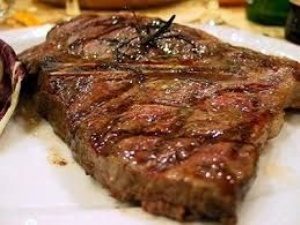Feeling constantly fatigued is a daily reality for many people. While fatigue can have multiple causes, nutrition plays a key role in energy levels. According to medical sources such as Healthline, Cleveland Clinic, and Medical News Today, choosing the right foods not only improves physical and mental performance, but can also prevent the energy slumps caused by ultra-processed products or excess sugar.
One of the pillars to maintain good energy throughout the day is lean proteins, those that provide high protein value without excess saturated fats. In addition to contributing to greater satiety and blood sugar stability, these proteins are digested slowly, allowing for a constant release of energy and helping to avoid the typical ups and downs of fatigue.
They also play a fundamental role in preserving muscle mass, key to an active metabolism. As explained by the specialists at Healthline, their regular consumption can reduce systemic inflammation, a condition that often goes unnoticed but contributes to chronic exhaustion.
 Meats are a rich source of protein.
Meats are a rich source of protein.
Where to find lean proteins?
There are numerous everyday foods that are valuable sources of this type of proteins. Among the most recommended are:
- Skinless chicken breast: low in fat and high in protein.
- Fish: both white (such as hake) and oily fish (salmon, trout, or sardines), the latter also rich in omega-3 fatty acids.
- Egg whites: a pure source of fat-free protein.
- Legumes: lentils, chickpeas, and beans, which also contain fiber and minerals.
- Skim dairy products, like plain yogurt: rich in calcium and vitamin B12.
Specialists also recommend pairing these proteins with complex carbohydrates, found in whole grains, fruits, or vegetables, to optimize energy levels and avoid sugar spikes.
Energetic breakfasts: three options to start the day with vitality and leave fatigue behind
Conscious eating from the first meal of the day can make a difference in physical and intellectual performance. These three combinations bring together lean proteins, healthy fats, fiber, and essential micronutrients:
- Whole grain toast with avocado and poached egg: a complete option that balances slow-release carbohydrates, quality proteins, and good fats.
- Plain yogurt with berries and seeds: ideal for digestion and gut health, thanks to the yogurt’s probiotics and the antioxidants in berries.
- Oatmeal, banana, and natural peanut butter smoothie: perfect for those seeking sustained energy. Oatmeal and banana provide complex carbohydrates and potassium, while peanut butter adds plant proteins and good fats.

Other foods that help combat fatigue
- Nuts: almonds and walnuts, for their content of vitamin E, magnesium, and healthy fats.
- Green leafy vegetables, like spinach: rich in iron, essential for tissue oxygenation and fatigue prevention.
- Coffee and green tea: consumed in moderation, they improve alertness due to caffeine, although they should be avoided in excess to not affect rest.
Incorporating foods rich in lean proteins, whole carbohydrates, iron, magnesium, and healthy fats is an effective and natural strategy to improve daily energy. Far from being a magical solution, a balanced and conscious diet emerges as an accessible tool to face fatigue and promote long-term physical and mental well-being.
Eggs, an ideal protein source to incorporate into any meal
Eggs are one of the healthiest foods to include in breakfast, as they not only provide protein and energy, but also satiety. However, cooking an egg may seem as simple as bringing water to a boil and immersing it; but for it to be “perfect,” a team of researchers proposes “periodic cooking,” which also gives it a higher nutritional content.
The goal is to optimally cook both the yolk and the white, which require two different temperatures, and the method is detailed in a study published in Communications Engineering by a team of Italian researchers.
Periodic cooking involves alternating the egg between a pot of water at one hundred degrees and a bowl at thirty degrees, moving it from one to the other every two minutes for a total of 32 minutes.
Have you visited our YouTube channel yet? Subscribe now!

